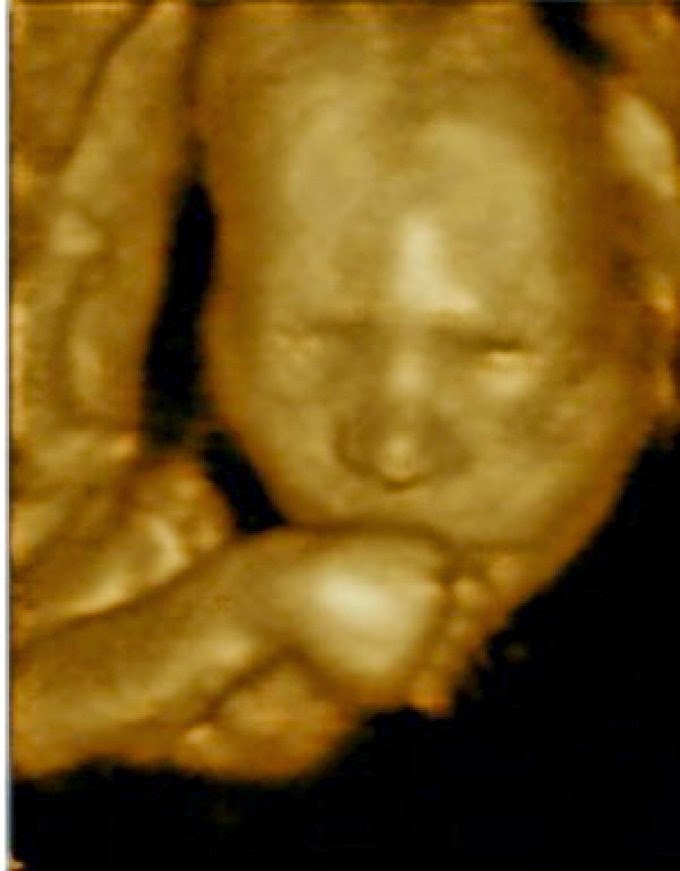Here comes the 'super-amniocentesis': it reveals 80% of diseases
The data Sidip, italian college of maternal fetal medicine. Thanks to rapid DNA sequencing technique applied to the fetus
 |
| Fetus 14 weeks |
The sequencing 'targeted'. Researchers at Sidip, whose study was published in the Journal of prenatal medicine, applied for the first Next generation sequencing (GSN), which is the rapid sequencing of target DNA, prenatal diagnosis, developing what was then Ngpd baptized. The complete sequencing is already being done by many laboratories around the world, but the Ngpd allows you to go further and look for the individual genetic diseases, resulting in a faster response. "Where once the normal amniocentesis and chorionic villus sampling techniques were able to analyze only the number of 46 chromosomes - explains Claudio Giorlandino, gynecologist, general secretary of the Italian Sidip College of maternal fetal medicine - it is now possible to study the inner structure, as if a chromosome was a skyscraper of millions of floors, the present technique gives the possibility of controlling each individual brick. It can thus be excluded, in addition to the most common chromosomal abnormalities, even the most rare and serious genetic diseases, by congenital heart disease, the diseases of the brain, the dwarf, forms of autism known to mental retardation syndromes and the hundreds of other surprises that every day you discover after birth. "
Costa 1.500 €. The Ndgp is a kind of 'super-amniocentesis' or 'super-CVS', but is only offered by private structures and cost almost double a normal amniocentesis or chorionic villus sampling. In fact, this exam costs about 1,500 Euros. "The Ngs (Next Generation Sequencing) - says Alvaro Mesoraca, biologist and researcher Ngs Sidip - is a technique used for the study of genetic diseases. The novelty of this technique is that while it was running before the diagnosis of a genetic disease at a time today with the Ngs there is the possibility to check hundreds of diseases simultaneously. we tried to apply for the first Ngs prenatal diagnosis in utero and it was a great find, ever. Now the fetal DNA is revealed. with what we we called Ngpd you have the ability to diagnose hundreds of diseases in the field of prenatal diagnosis. it has greatly increased the potential of prenatal diagnosis. we have developed a software that identifies the valid EC selected diseases to diagnose the fetus. the expected Ngpd study of 300 genes that are the basis of most genetic diseases detectable in womb: cardiovascular, skeletal malformations, neurological. "
The health of the unborn child. "Fewer and fewer women - adds Giorlandino - are content to have probabilistic information derived from expensive commercial screening of all generic, uncertain and limited only to suspect the existence of three or four chromosomal disorders such as Down syndrome. The families who want to be properly informed about the health of the unborn child should know by now that science can, in large measure, to give definite answers from the third month of pregnancy through a simple chorionic villus sampling or during the fourth month in a trivial amniocentesis. the doctors themselves under the pressure of recent decisions of the Supreme Court, are required to correctly inform parents that it is possible to 'know'. ""We Gynecologists we know that, by now, the responsibility of a birth of a child with one of the hundreds of genetic diseases lies with ourselves when, instead of informing the real diagnostic potential of science, had prescribed inaccurate screening tests, directing improperly the choice of parents who, according to the legislature, must be free, informed and aware, "he says.

Comments
Post a Comment